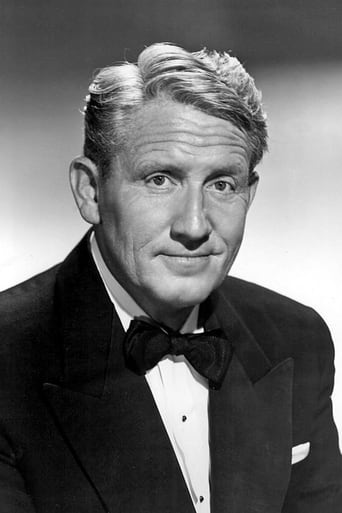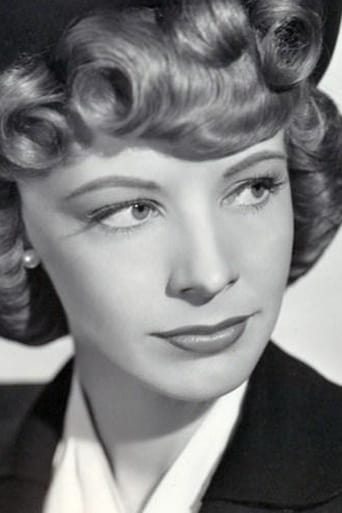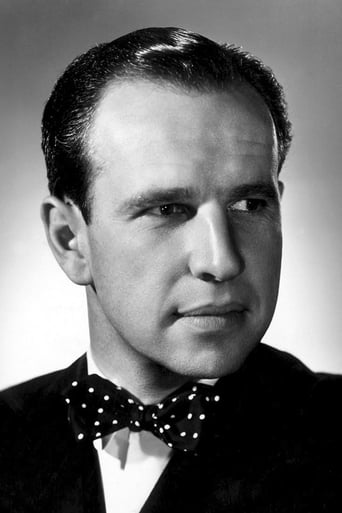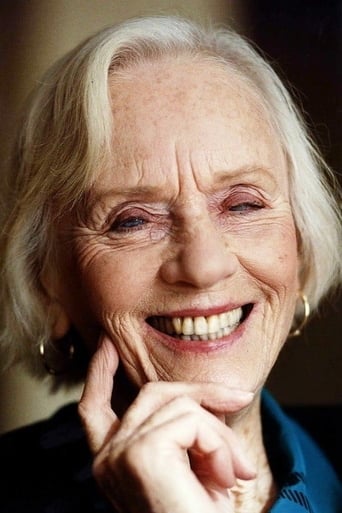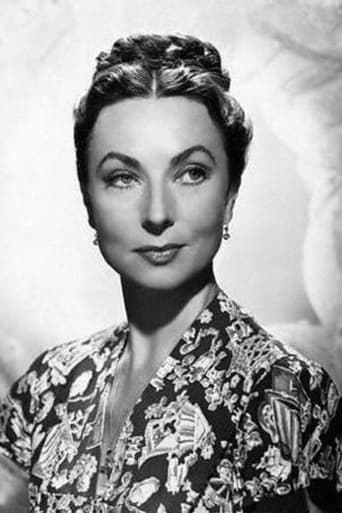AniInterview
Sorry, this movie sucks
Hayden Kane
There is, somehow, an interesting story here, as well as some good acting. There are also some good scenes
Janis
One of the most extraordinary films you will see this year. Take that as you want.
SimonJack
Several other reviewers discuss the plot of "The Seventh Cross," and a little bit about Anna Seghers, author of the book on which the film is based. My comments will be on some aspects not as much discussed. Most obvious is the historical significance of the book and this movie. The story takes place in 1936 and was written by Seghers in 1940, after she had fled Germany for Mexico. As others noted, this is one of a very few films made by Hollywood that mentions concentration camps. "The Mortal Storm" in 1940 was the first that I can recall. It starred Jimmy Stewart, Margaret Sullavan and Robert Young. Seghers is the pen-name of Netty Reiling, a woman of Jewish descent born in 1900. Her home was Mainz, which is the place where much of "The Seventh Cross" takes place. Her Communist background is irrelevant to the story, except for two things. First – the prisoners who are the subject of this story had been members of the Communist party in Germany. Communists, Catholic priests, and political opponents were the first groups to be put into concentration camps by the Nazis. Second – Seghers, herself, had been arrested by the Gestapo, after she wrote her 1932 novel, "Die Gefährten" (The Companions). I don't know any more details about her arrest or imprisonment. She obviously was released by the authorities. But then she waited to flee Germany until after the fall of France to the Germans in late June, 1940. From 1933 through 1939, some 475,000 Jews had fled Germany. Aside from the interest this bit of information may be to other viewers, I mention it because it points to the daring and risk that Anna Seghers took in remaining so long in Germany. Of course, had she not done so, we may never have gotten the wonderful story she wrote that is the basis of this movie. What Seghers gave us in her book, and what the film shows very well, was the condition of the German people at that time – around 1936. This is a story about some of the common people. Those who may have been led to believe or hope in the lies and empty promises of the Nazis. It is about a few of those who kept in line on the surface, but were willing to fight the Nazis privately. We can see the blind fervor and loyalty of much of the population. And we can see the fear and caution of many. And, we can see the toil on human emotions and the human spirit in Spencer Tracy's character after he escapes and struggles to find anyone to help him. A combination of that helplessness and fear is evident also in Jessica Tandy's character, as she sits crying and wondering if her husband would return after being taken away by the Gestapo. So, this film gives us a good picture of the human condition of the time – the fear by most, the despair by many, the hopelessness by some. And, then we see the ray of hope that Tracy's George Heisler begins to show as one person and then another is willing to help him. We can come to the same conclusion – so long as there are a few people who care and are willing to risk their security and life for others, there is hope for mankind. Finally, "The Seventh Cross" stands as a truly great film on acting – the acting profession itself. The performances by every single character are excellent. They show in their actions, expressions and words, the full range of emotions – believably. Just concentrate on Tracy's Heisler alone. The role has few spoken lines – it may be the fewest of any star in any movie. But we see the slow transformation of that man from fear and despair to hope and optimism – almost entirely in his facial expressions and physical demeanor. Great acting, indeed! And "The Seventh Cross" excels in all its technical aspects as well – script, directing, lighting, cinematography, sets and costumes. An excellent, thought-provoking and entertaining film for all ages and all time. It's a good look at history that we should not forget.
Michael O'Keefe
George Heisler(Spencer Tracy)is one of seven men that escapes from a Nazi concentration camp. The commandant has seven trees to be made into crosses to hang the captured escapees. Heisler battles hunger, thirst and fatigue and manages to be the last escapee to not be captured. He perceivers to carry out a bungled plan to reach sympathizers for temporary shelter, change of clothes and money. The one thing that keeps him going is the thought of his beloved Liesel(Jessica Tandy); but when he finds her she doesn't look the same as in his dreams...even worse she has married another man. He still needs help and a lot of luck to dodge Storm Troopers and get out of war torn Germany. Does Tracy ever turn in a bad performance? This also Ms. Tandy's screen debut. Others in the cast: Hume Cronyn, Agnes Moorehead, Ray Collins, Felix Bressart and Signe Hasso.
samhill5215
This one caught me by surprise. It seemed rather formulaic at first, straightforward propaganda to inspire the people back home in the last years of WWII. But as it progressed it became much more, a portrait of German society on the eve of the aggression that started it all. Some elements tended to the melodramatic, especially the romance between Tracy and Hasso. I mean come on, they're confessing their love for each other after barely spending a few minutes together? Frankly Tracy has never been a favorite of mine in his earlier roles. He always tended toward the self-righteous, the arrogant, the visionary with no human frailties.The narration from Ray Collins, the first escapee to be caught and killed was also on the corny side. Remember he was the first to die yet he's narrating much of the story. That may have worked in 1944 but today that's pretty dated. There are more effective ways to accomplish the same thing. Moreover the pathos in his voice was also a little over the top.The standout performances here were from Hume Cronyn and Jessica Tandy as a couple from the working class who are enjoying the benefits of National Socialist largess. Their situation perfectly illustrated how the Nazi social programs kept the German workers happy with subsidies and tax advantages. I'm impressed that a film from 1944 dealt with that in an honest and straightforward manner. In my opinion the standout scene is when the Cronyn returns home after being questioned by the Gestapo and finds Tandy sitting at the table in their apartment. She looks up at him and the look on her face goes from surprise to amazement to joy and then she releases all her pent-up emotions and breaks down in uncontrollable sobs as Cronyn tries to comfort her. What a moving moment and what a treat!
carvalheiro
"The Seventh Cross" (1944) directed by Fred Zinnemann is a free adaptation from a novel made eight years before about concentration camps in Germany, during the national socialism reign in 1936. It seems like a documentary now, as about a peaceful crowd that for instance observes a fugitive at the roofs as if it was an acrobatic meeting with a circus man, that takes the suicide as option or as concerning another who escapes and changes the suit in a local theater at town, just before enters in the net lace of friends under servitude.The sensation in which by night the main character of the tranquil fugitive is sight as an anodyne citizen inside the tramway and confounded for a while - it seems to him - with a pickpocket, it is of course the main impression of normality of the current life here, even though it is at the core of any society where common natural behavior it was the same, if it was not as there. There are in this movie an air of naturalism and even a visit to the headquarters of Gestapo in Berlin, as it was likewise a mere chance to the German people. To see Germany before its destruction by the war is one of the imaginative points of the Zinnemann conception in this adaptation from the novel, in which the thirties are retro imagined in the forties, before the end of the war. The way in which the fugitive of a concentration camp is helped are conditioned by circumstances out of any established rule, but by the convenience of the daily activity of a kind of circle of friends, occasionally concerned by the idea for putting someone near another town, as which it seems with a port by night where he is lodged during a while at a restaurant with rooms. The fact that the young maid was in love for him is mere chance for the protagonist of the scape, which was at the risk of failure by the pressure of the local authorities. In a kind of cat and rat gamble with traditionally oppression, that took the genre of smugglers and sailors before any departure abroad, whose sequence is shown with such a domestic darkness for those who think about that with discretion, if anyway it was forbidden without people support in these conditions of humankind and bravery.


